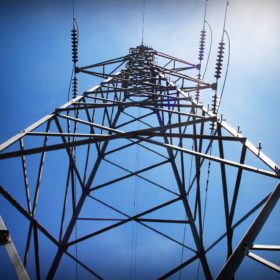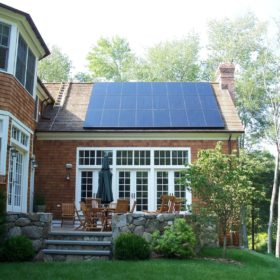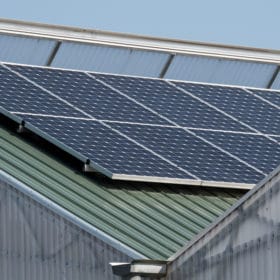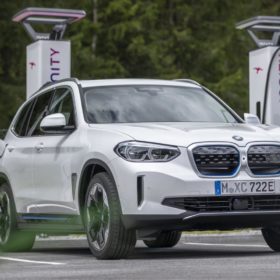New microinverter from the US
Yotta Energy’s new micro-inverter is claimed to be an ideal solution for commercial rooftop PV systems linked to between 500 kWh and 1 MWh of storage. The device has a peak efficiency of 96.5% and a nominal maximum power point tracking (MPPT) efficiency of 99.5%.
‘New solar will be cheaper than existing conventional power stations in Germany this year’
With forecasters predicting the carbon price will top €100 per ton by 2030, the latest edition of a Fraunhofer ISE study into electricity generation costs has painted the renewables-versus-fossil fuels conundrum as something of a no-brainer.
Concrete flywheel storage system for residential PV
A French start-up has developed a concrete flywheel to store solar energy in an innovative way. Currently being tested in France, the storage solution will be initially offered in France’s overseas territories and Africa.
The case for microinverters in Indian rooftop solar
Sunil Thamaran, India head for US company Enphase Energy, explains why microinverters are a good investment for rooftop solar. He also talks about the trends in microinverter design and the company’s plans in India.
Italy has 189 MW/295 MWh of distributed storage capacity
The country added around 73.5 MW/109.2 MWh of new, small-sized storage capacity in 2020. Most of the batteries are in Lombardy and Veneto, where rebates are being offered.
Solar 101: It all comes down to curb appeal
The residential solar industry has taken notice of the demand for beautiful, hidden panels, and is now providing creative and attractive designs that you can incorporate into your rooftop solar project.
UK solar industry wants capacity trebled this decade
Solar Energy UK today called on the government to provide it with the same kind of support that has been extended to offshore wind companies.
Taiwan maintains feed-in tariffs for PV unchanged
The move is intended at helping the solar sector recover from the delays caused by the Covid-19 crisis. The Taiwanese government has also granted a three-month grace period for project completion.
Gravity-based storage for distributed solar
An international research team has designed a residential solar-plus-storage system based on gravity. The system was built with a solar power generator, a bulk booster charge controller, an inverter, a solenoid device, a deep cycle battery, a pulley block, a geared motor, a microcontroller, and wire ropes. Its creators said the system is ideal for regions with high solar radiation. They found that, due to its high electrical requirements, the system needs to rely on high-power solar modules with an output of over 500 W.
New tool aims to streamline fast-charging EV station design
A new project offers a design and validation framework for renewables-based microgrid configurations that deliver electric vehicle fast charging, energy security, and value-added grid services.










